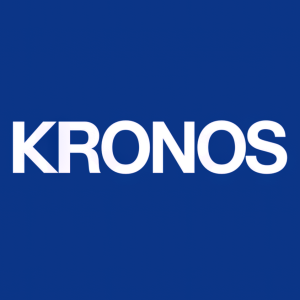KRONOS WORLDWIDE, INC. ANNOUNCES ACQUISITION OF JOINT VENTURE INTEREST, AMENDMENT TO REVOLVING CREDIT FACILITY AND QUARTERLY DIVIDEND
Rhea-AI Summary
Kronos Worldwide, Inc. (NYSE: KRO) has announced three significant developments:
1. Acquisition: Kronos has acquired the remaining 50% joint venture interest in Louisiana Pigment Company, L.P. (LPC) for $185 million upfront, with a potential $15 million earn-out. This makes LPC a wholly-owned subsidiary of Kronos.
2. Credit Facility Amendment: Kronos has amended its global revolving credit facility with Wells Fargo, increasing the maximum borrowing amount from $225 million to $300 million and extending the maturity date to 2029.
3. Dividend Reduction: The company has declared a quarterly dividend of $0.05 per share, a decrease of $0.14 compared to the previous quarter, to focus on maintaining a strong balance sheet and evaluating strategic investment opportunities.
Positive
- Acquisition of remaining 50% stake in LPC, expanding product offerings and increasing sales potential
- Potential for significant synergies including commercial, overhead, and supply chain optimization
- Increase in revolving credit facility from $225 million to $300 million, providing additional liquidity
- Extension of credit facility maturity to 2029, improving long-term financial flexibility
Negative
- Upfront cash payment of $185 million for LPC acquisition, potentially impacting short-term liquidity
- Additional debt taken on to finance the acquisition
- Quarterly dividend reduced by $0.14 per share, potentially disappointing income-focused investors
- Potential integration challenges and costs associated with fully incorporating LPC operations
News Market Reaction – KRO
On the day this news was published, KRO declined 19.06%, reflecting a significant negative market reaction.
Data tracked by StockTitan Argus on the day of publication.
Dallas, Texas, July 17, 2024 (GLOBE NEWSWIRE) -- Kronos Worldwide, Inc. (NYSE: KRO) made the following announcements today:
Acquisition of Remaining Joint Venture Interest in LPC
Effective July 16, 2024, Kronos Worldwide, Inc. (“Kronos”) has acquired the
“This acquisition is a one-of-a-kind opportunity for Kronos to add value to our customers and better serve the North American market,” said James M. Buch, Kronos Chief Executive Officer. “With full ownership of the LPC facility, Kronos will expand its product offerings and increase sales to new and existing customers while recognizing significant synergies including commercial, overhead and supply chain optimization. By implementing process innovations to increase capacity and improve efficiency using proven technology utilized at other Kronos facilities, we will be better positioned to serve our customers. LPC is the newest chloride-process TiO2 production facility operating in the Western world and we are excited to fully integrate LPC as part of Kronos and to invest in the future of this world class facility.”
Kronos previously operated LPC as a joint venture with Venator Materials or predecessors of Venator Materials since 1993. LPC is located near Lake Charles, LA with a current estimated annual production capacity of 156,000 metric tons. The acquisition was financed with cash on-hand and borrowings under Kronos’ global revolving credit facility. Kronos will report LPC as a wholly-owned subsidiary beginning with its third quarter Form 10-Q filing. Kronos may continue to evaluate and explore additional financing opportunities, subject to market conditions.
Amendment to the Revolving Credit Facility
In connection with its acquisition of the
Third Quarter Dividend
Kronos’ board of directors has declared a quarterly dividend of five cents (
Kronos Worldwide, Inc. is a major international producer of titanium dioxide products.
Forward-Looking Statements
The statements in this press release relating to matters that are not historical facts are forward-looking statements that represent management's beliefs and assumptions based on currently available information. These forward-looking statements include, among others, statements about the potential effects of the LPC acquisition, including expected synergies, innovation and other benefits, statements about the effect of the reduction of the dividend in the third quarter and statements about future dividend payments. Although Kronos believes the expectations reflected in such forward-looking statements are reasonable, it cannot give any assurances that these expectations will prove to be correct. Such statements by their nature involve substantial risks and uncertainties that could significantly impact expected results, and actual future results could differ materially from those described in such forward-looking statements. The factors that could cause actual future results to differ materially include, but are not limited to, the following:
- Future supply and demand for our products
- Our ability to realize expected cost savings from strategic and operational initiatives
- Our ability to integrate acquisitions, including LPC, into our operations and realize expected synergies and innovations
- The extent of the dependence of certain of our businesses on certain market sectors
- The cyclicality of our business
- Customer and producer inventory levels
- Unexpected or earlier-than-expected industry capacity expansion
- Changes in raw material and other operating costs (such as energy and ore costs)
- Changes in the availability of raw materials (such as ore)
- General global economic and political conditions that harm the worldwide economy, disrupt our supply chain, increase material and energy costs or reduce demand or perceived demand for our TiO2 products or impair our ability to operate our facilities (including changes in the level of gross domestic product in various regions of the world, natural disasters, terrorist acts, global conflicts and public health crises)
- Operating interruptions (including, but not limited to, labor disputes, leaks, natural disasters, fires, explosions, unscheduled or unplanned downtime, transportation interruptions, certain regional and world events or economic conditions and public health crises)
- Technology related disruptions (including, but not limited to, cyber-attacks; software implementation, upgrades or improvements; technology processing failures; or other events) related to our technology infrastructure that could impact our ability to continue operations, or at key vendors which could impact our supply chain, or at key customers which could impact their operations and cause them to curtail or pause orders
- Competitive products and substitute products
- Customer and competitor strategies
- Potential consolidation of our competitors
- Potential consolidation of our customers
- The impact of pricing and production decisions
- Competitive technology positions
- Potential difficulties in upgrading or implementing accounting and manufacturing software systems
- The introduction of trade barriers or trade disputes
- Fluctuations in currency exchange rates (such as changes in the exchange rate between the U.S. dollar and each of the euro, the Norwegian krone and the Canadian dollar and between the euro and the Norwegian krone), or possible disruptions to our business resulting from uncertainties associated with the euro or other currencies
- Our ability to renew or refinance credit facilities or other debt instruments in the future
- Changes in interest rates
- Our ability to maintain sufficient liquidity
- The ultimate outcome of income tax audits, tax settlement initiatives or other tax matters, including future tax reform
- Our ability to utilize income tax attributes, the benefits of which may or may not have been recognized under the more-likely-than-not recognition criteria
- Environmental matters (such as those requiring compliance with emission and discharge standards for existing and new facilities)
- Government laws and regulations and possible changes therein including new environmental, health, safety, sustainability or other regulations (such as those seeking to limit or classify TiO2 or its use)
- Pending or possible future litigation or other actions.
Should one or more of these risks materialize (or the consequences of such a development worsen), or should the underlying assumptions prove incorrect, actual results could differ materially from those forecasted or expected. Kronos disclaims any intention or obligation to update or revise any forward-looking statement whether as a result of changes in information, future events or otherwise, except as required by law.
* * * * *
Investor Relations Contact
Bryan A. Hanley
Senior Vice President and Treasurer
Tel. 972-233-1700








